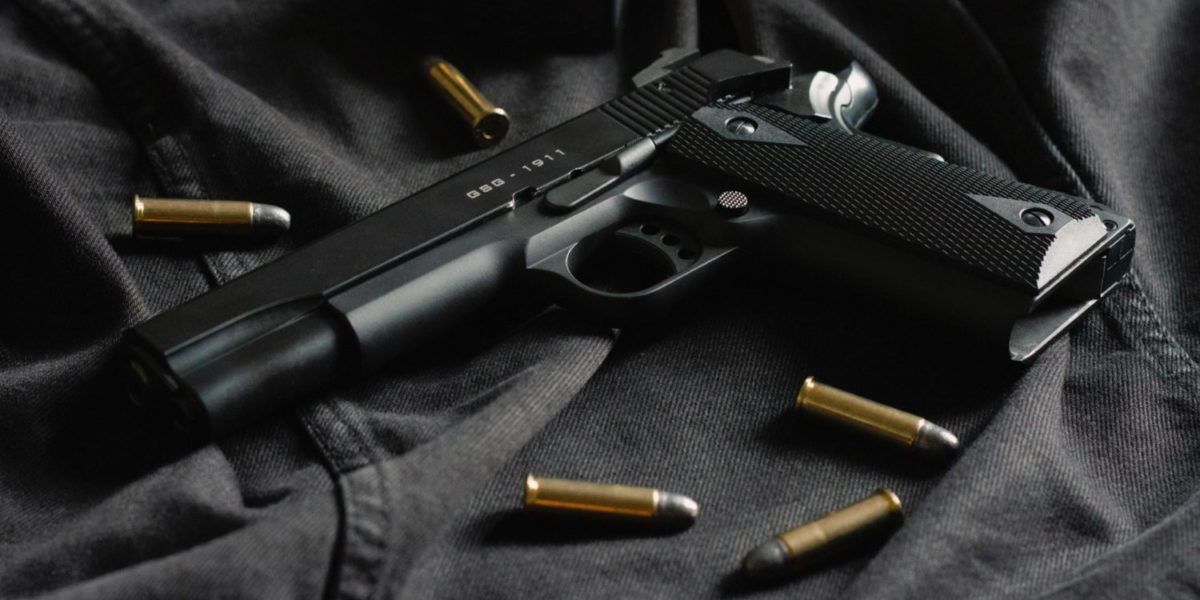As the U.S. continues to grapple with more than 300 mass shootings taking place so far this year, the government of Canada is taking further steps to curb gun violence across the country.
Last week, the federal government implemented a temporary ban on the importation of restricted handguns, a move it characterized in a media statement as helping “bring the ultimate impact of the national handgun freeze into force sooner.”
“We know that one Canadian killed by gun violence is one too many,” said Minister of Foreign Affairs Mélanie Joly in a statement. “The import ban will help to keep guns off our streets as we work towards implementing Bill C-21, reducing gun violence in the immediate term.”
Taking effect on August 19, the ban will prevent individuals and businesses from being able to import handguns into Canada. There are some exceptions to the legislation, but they are described by the federal government as “narrow” and mirror exceptions listed in Bill C-21. The ban will last until Bill C-21 receives royal assent and completes the legislative process.
“No single program or initiative can tackle the challenge of gun violence on its own,” the release read.
Ban supported by Polytechnique massacre survivor
For advocacy organization PolySeSouvient (French for PolyRemembers), a temporary ban on handguns is a welcome one, provided it’s followed up with concrete action.
PolySeSouvient began more than 30 years ago in the wake of the December 6, 1989 mass shooting at Montreal’s Ecole Polytechnique where a 25-year-old man waged a targeted attack against women on campus, killing 14 people and injuring another 14. The mass shooting made international headlines and served as a launching point for activists fighting to end violence against women.
For Polytechnique graduate and survivor, Nathalie Provost, the ban on importing handguns represents both “determination and ingenuity” of the federal government’s efforts to “rein in the exponential growth of the number of handguns in private hands in Canada.”
“Because commercial inventories still remain, including some that may have been replenished after having been sold out, and because domestic production can still continue, a ban on imports will not end the purchase of handguns in Canada,” Provost said in a statement released in the hours following the announcement of the ban. “However, this is a significant and creative measure that will unquestionably slow the expansion of the Canadian handgun market until Bill C-21 is adopted, hopefully this fall.”
While Provost is pleased to see the federal government take gun violence seriously, she believes that, ideally, the purchase of new handguns could have ended in the days after regulations were tabled by the Liberals.
“But passing these regulations required unanimous consent from all parties and, unfortunately and unsurprisingly, the Conservative Party refused to cooperate, thereby allowing the massive run on handguns that has since been observed across the country,” Provost said, noting that nearly eight out of ten Canadians support banning the importation, purchase, and sale of handguns.
Understanding Bill C-21
The temporary ban on importing handguns comes less than three months after Canada’s Minister of Public Safety, Marco Mendicino, announced legislation to “better regulate sales and transfers of non-restricted firearms.”
The gun control measures, which took effect on May 18, forces individuals and businesses to confirm a potential gun buyer’s identity and verify the validity of their firearms license prior to completing the sale or transfer. Gun sellers are also now required to keep sales and inventory records of non-restricted firearms.
The ban marks a shift by the federal government to rely on regulations while more comprehensive legislation in the form of Bill C-21 continues to move through the House of Commons before being sent to the Senate of Canada. The bill has so far passed its second reading by MPs.
Bill C-21 represents some of the strongest gun control measures since the 1970s. The legislation would result in an immediate freeze on handguns—a move that would effectively cap the number of handguns in the country while also preventing the importation of new ones coming into Canada. Regulations have already been amended to ensure the handgun freeze comes into force sometime this fall.
Bill C-21 would also see the revocation of firearm licenses for individuals who have been convicted of acts of domestic violence or criminal harassment, as well as tougher sentences for gun smuggling and trafficking.
The federal government’s push to prevent handgun violence comes as the country reports that there were more than one million handguns registered in Canada between 2010 and 2020, an increase of 71 per cent. Meanwhile, the number of firearms seized at border crossings more than doubled in 2021 compared to 2020.



